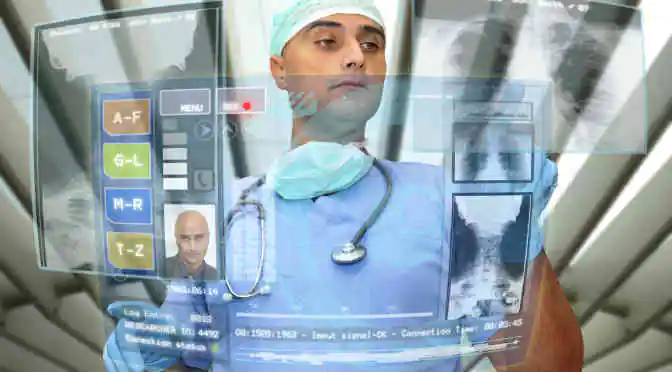The healthcare industry is no longer the traditional space which majorly involved itself in one-sided interactions with the patient community. As patients look for more involvement in their healthcare decisions, and with health technology making the system transparent and easy to comprehend, our industry analysts predict a rather encouraging outlook for the hospitals of the future. This estimation isn’t based on recent developments in the sphere of telemedicine alone; rather it has more to do with the manner in which healthcare management solutions have evolved over the past few years.
How is healthcare delivery being brought up to speed?
By enhanced healthcare delivery, we mean adoption of-
- Automation and robotics for care and ancillary services
- Centralized digital centers for continuous monitoring of patients and better decision making
- Artificial intelligence to make the treatment and recovery process seamless
- 3D printers for targeted treatments
- Robotic process automation, so that caregivers can spend more time with the patients
Healthcare IT, is thus, seen by stakeholders as an essential key to make the entire process of healthcare delivery a very uncomplicated process. What is required is proper integration of all these technological innovations with the existing healthcare systems so that it becomes a lot easier to address the emergency requirements of the patients without glitches of any kind.
Along with better patient care, healthcare informatics also cuts down the costs involved and improves the overall reliability in the services provided.
Digital hospitals are as futuristic as they sound!
There is no doubt that within the forthcoming decade, healthcare services will go highly digital, and with an exception of complex procedures and intensely critical patients, the need for human intervention will be minimal. Converting the conventional hospital into a digital hub will require huge investments, as well as a clear understanding of the technologies and processes. And, even though the stakeholders of the hospital might not see immediate returns on their investments– overall, digital hospitals will provide a higher quality of care, operational efficiencies, and enriched interactive experiences for the patients and staff.
The prerequisites for the establishment of digital hospitals are-
- A culture of digital transformation
- Adoption of technology which affords better communication
- Use of collected data in the most intelligent, efficient and ethical manner
- Investments in upgrading the skills and knowledge of the workforce
- Due attention to cybersecurity
The future of the human race in general is predominantly digital. And, when it comes down to healthcare services, it is only natural that digital technology plays that key facilitator’s role. Thus, digital hospitals are going to bring in a major paradigm shift in the healthcare industry.



